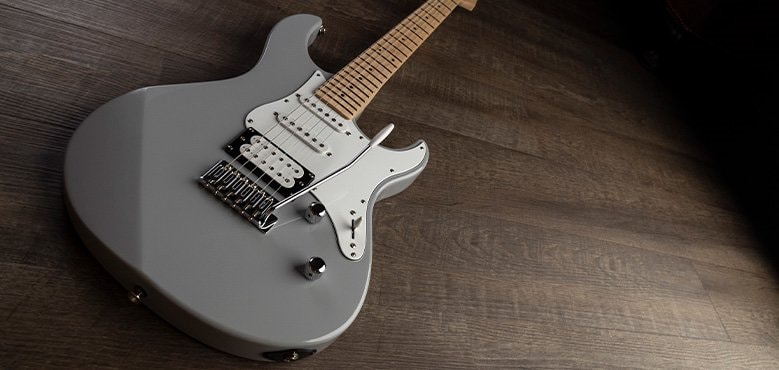How to Generate Powerful Song Ideas & Write Killer Hits
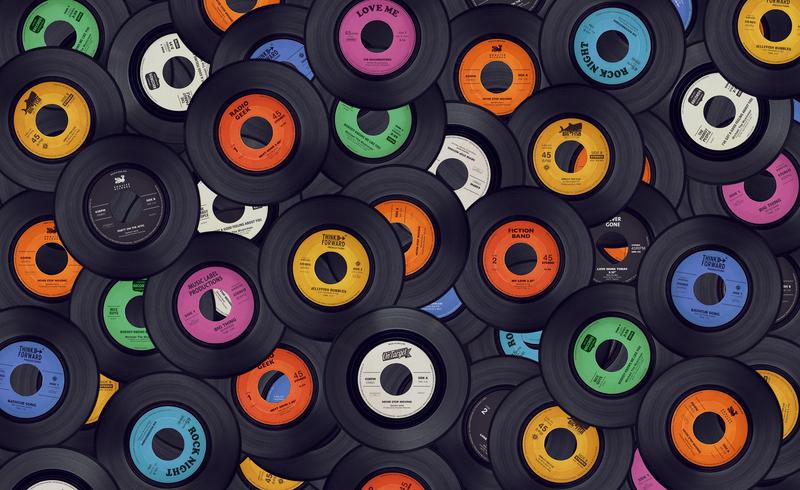
Sometimes writing songs is easy. Your song ideas are flowing, and you feel so inspired that you can’t get your ideas down onto the page quickly enough. However, other times, you can’t write songs to save your life.
Writer’s block is tough. Each chord progression feels dull and lifeless, and your lyrics feel stale and boring. It’s easy to think you’ll never write a good song again.
So what can you do to get your creative juices flowing again? How can you come up with songwriting ideas when you’ve got nothing in the tank?
Thankfully, there are many methods you can use to help you write songs, even when you’re in a funk.
Some of them relate to writing lyric ideas; others help with composition. But all of them are worth trying out when you’re sick of staring at a blank page.
So let’s get into our list of tips, tricks, and writing song prompts that you can use, whether you’re a beginner or an expert songwriter who feels out of ideas.
Of course, if you don’t have time to dig through an article and instead want to get right into some quality learning that will end your song writing woes, check out the Elevate by ICMP Complete Songwriter Expert Track course.
The course will take you on a deep dive through music theory, song structure, and lyric writing for a whole host of popular genres, like rock, folk, pop, and electronica.
Our 4-in-1 course covers the following:
But for now, use these 40 great tips to help you write killer tracks.
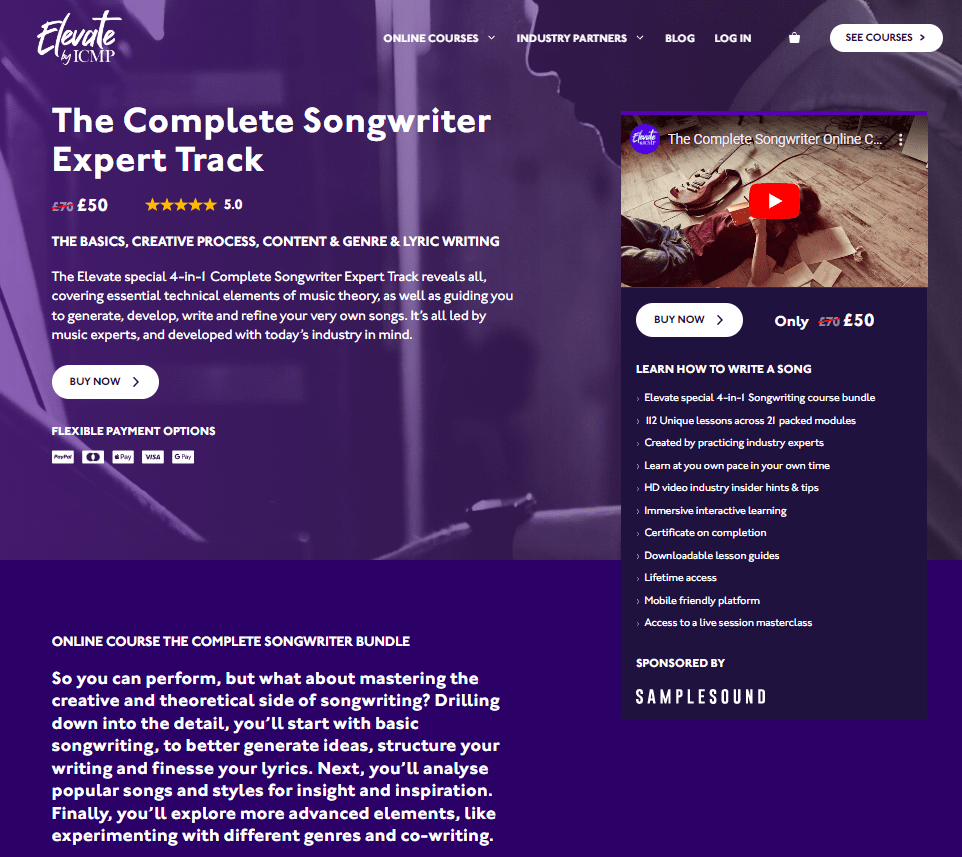
#1. Take the pressure off
One of the big reasons we get writer’s block is that we feel under pressure to write songs. Don’t get us wrong; pressure can be a great motivator. But it can also be restrictive.
So, if you’re feeling stressed because of expectations, sit back and take a moment to yourself. Remember, songwriting should be fun. It’s about creativity, exploration, and experimentation.
Don’t think about your band, career, or aspirations for a bit. Write a song purely for your own pleasure. Who cares if the lyrics are cringe or the chord progression sounds suspiciously like your favourite hit record?
Once you’ve completed your song that no one will ever hear, lock it away in a safe and get back to the serious business. You might find your blockage is over, and you’re ready to start writing hits all over again.
#2. Listen to some great songwriters
If you find yourself short of some ideas, take a break and listen to some great songs. You don’t even need to limit it to tracks you love or songs from your genre. If anything, it’s better to branch out a little and take inspiration from other artists.
You can learn a lot from just listening to music. But we don’t mean putting on a few tracks while you do the dishes. Instead, we’re saying to put on some headphones and turn out the lights and really think about what’s happening in the song.
Study the lyrics, the melody, the harmony, the bass and the drums. Figure out what’s happening and, most importantly, why it works.
In particular, consider what is exciting, unpredictable or unexpected about the song.
Does the chord progression feature some unexpected 7th? Is it the syncopated bassline that really makes the track move? Maybe it’s the production that gives everything room to breathe?
Whatever it is, there is always something to learn from other songwriters that you can bring into your next studio or songwriting session.
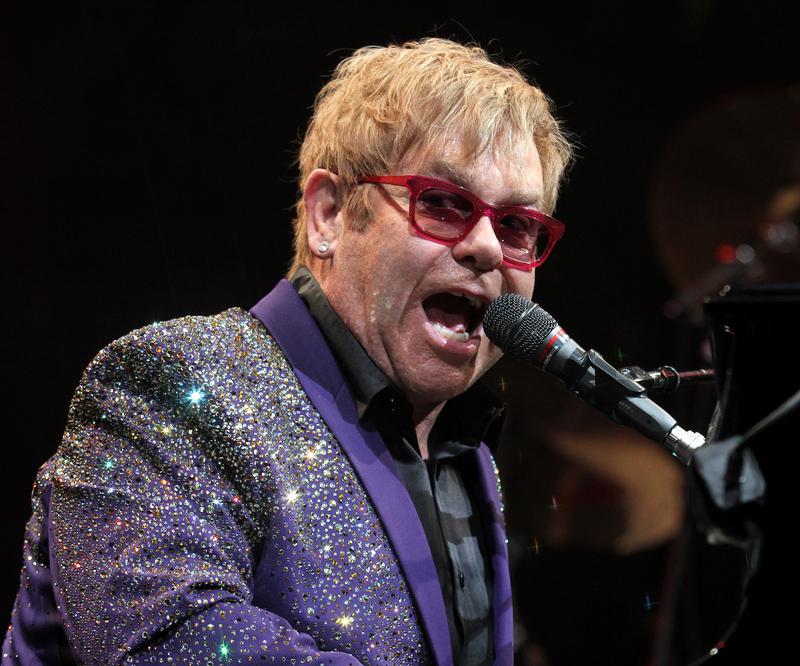
#3. Break up your routine to inspire your song idea
Let’s first start by saying that having a routine is important. Getting up, brushing your teeth, showering, and having a coffee is all good stuff. However, sometimes a pattern can hamper your creativity.
If you always write in the same room at the same time, you can start to feel a little restricted. Looking at the same four walls and playing the same guitar and piano can get stale. Breaking up that kind of routine can lead to something new.
So find ways to change it up. If you typically write in the morning, switch to the afternoon or the evening. If you’re the type of songwriter that starts with lyrics and then adds music, go the opposite way.
Additionally, if you always write on a guitar, try and switch to a different instrument, which leads us on to our next time.
#4. Write songs using a different instrument
Look, we get it. Not everyone is Prince on several levels. Reportedly, his Royal Badness could play at least 27 instruments. He was also a mean dance and great basketball player, according to the late Charlie Murphy’s incredible True Hollywood Stories told on the Dave Chappelle show.
But even if you’re no expert on your second instrument, it’s worth picking one up when you’re out of ideas.
Bashing out a few notes on a piano can help you build the bones of a good melody. Grabbing a bass guitar and working out a groove can be a great source of ideas for a new track. Even cracking open your DAW can help you build the beat that can become the driving force of your next few hit songs.
Song ideas can come in a wide variety of places. Going back to the DAW example, you can load up a few different instruments and work out progression or melodies based on your piano or guitar playing.
It’s about lifting you out of your typical habits and trying something unconventional for your new song.
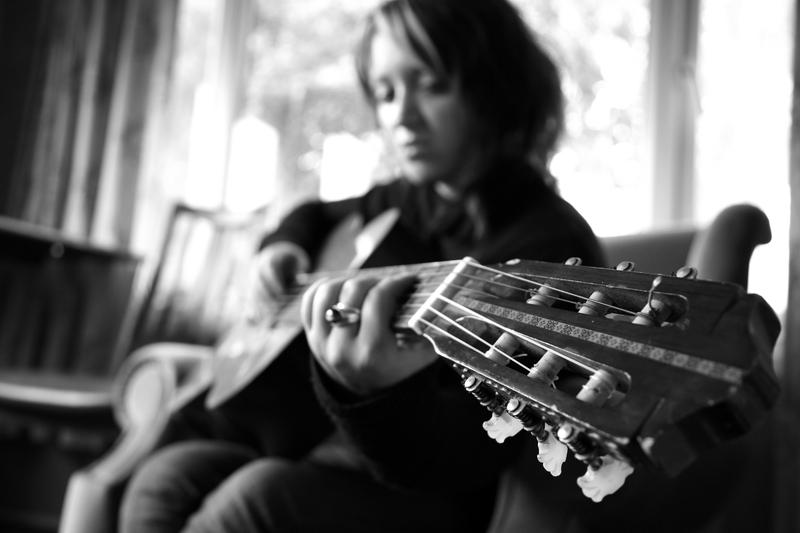
#5. When writing songs start with a song title
There is no set formula for writing songs. There are plenty of best practices, but the source of inspiration for a new song idea can come from anywhere, including the song title.
Some song titles are obscure and barely connected to the actual content of the track. Others are absolutely spot on, and you can’t imagine them having a different name.
So, scour books, news headlines, social media, or conversations with friends for intriguing terms and phrases.
Write down a few that really grab your attention and make you think. These snippets can become the inspiration for lyrics, or they can make you think about the moods and feelings that will be the inspiration for your next song.
#6. Free association or stream of consciousness
Sometimes your writer’s block becomes too big. But desperate times call for desperate measures. So instead of agonising over choosing the right set of words, write lyrics with nonsense words.
The key here is just to let them flow onto the page with no regard for how they sound. Many of Radiohead and REM’s best songs have lyrics that barely make any sense. In fact, if some of them feel like they were randomly through together, it’s because they were.
So write as many words and phrases as you can down on the page. Start putting them together, and you never know what cool lyrics you’ll come up with.
#7. Write your own lyrics over someone else’s song
This tip is fantastic if you just can’t seem to get your words down on the page.
Take a song that you like, or even one that you don’t, and find an instrumental version on YouTube. Then get out a pen and paper and start writing lyrics over the track.
Soon, you will find yourself coming up with lyrics that you can set to your own music based on the mood and content of the words you came up with.
#8. Write a diss track
Diss tracks aren’t only for rap and grime. In fact, you can use them whenever you’re feeling stuck.
Pick a famous person who annoys you or even someone in your social circle, and unleash some venom on them.
It doesn’t matter who it is; what you’re looking for is some lyrical hook that you can use as inspiration for your next track.
#9. Write a love song
There are so many songs written about being in love. In fact, it’s possibly the most regular source of lyrical content. Now, maybe your write in a genre that doesn’t typically have too many love songs. That’s perfectly fine because you don’t have to write modern R&B ballads to write about love.
There are endless ways to write romantic songs. If you’re unlucky in love, write songs about it. Maybe you’ve been dumped? Use it for inspiration. Are you totally happy with your partner? Then use that feeling to inspire your next track.
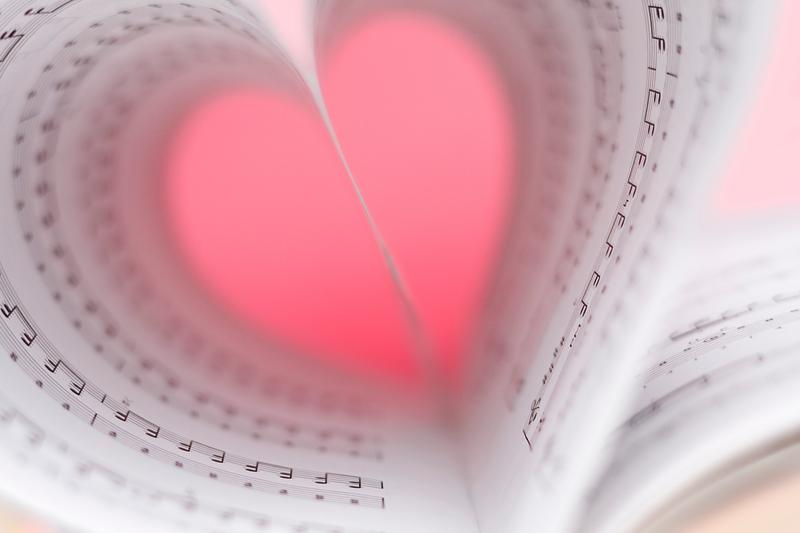
Related article: How to be a songwriter lyricist
#10. Take some existing lyrics and add your own melody
In tip #7, we suggest you write music for existing song lyrics. Well, you can do the opposite too.
If you find yourself short of lyric ideas, grab a verse and chorus that you love and reimagine alternative music for them. You can change the music’s beat, tempo, and feel to rework the original content in new and wonderful ways.
Once you have some backing music that you’re happy with, change all the lyrics into something fresh, and you’ll have a great song.
#11. Go through your back catalogue of tracks that didn’t quite work
Most songwriters are sitting on a bunch of songs that never made the cut for whatever reason. So dig out your old tracks and see if you can finally make them work.
This method is a great way to write a song when you just can’t write a song. Sometimes when you go back over your old music, you’ll realise that there was something great you’ve overlooked. Other times, you’ll understand exactly why you forgot about it.
However, we really recommend this method. Even if you just stumble upon a bridge that you can use in other songs, it’s a worthwhile endeavour.
#12. If you typically write sad songs, then write some happy ones instead
Depending on your genre, your stock in trade could be mournful meditations on a past love or dreary missive on the cruel tricks that the world plays on you, or even the horrors of mental illness.
But if you want to get out of your songwriting comfort zone, turn the tables on yourself and force yourself to write something completely out of character.
There are lots of ways you can approach things. For example, if you’re a big fan of major chords, write a progression using minor chords. You’ll be surprised at how your go-to progressions will feel totally different.
#13. Write a protest song
The world is full of political injustices of several kinds. If you’re unsure what your next song should be about, why not choose one of those issues?
The key here is not to make it too on the nose. A lot of songs about worthy issues can be a bit over the top. Just pick a topic that’s close to your heart and find a way to offer a message about the issue.
Remember, the best political songs find a way of spreading a message without lecturing the listener or hitting them over the head.
Some great examples of political songs include Sam Cooke’s – A Change is Gonna Come, Public Enemy’s – Fight the Power, and Joni Mitchell’s – Big Yellow Taxi.
Even making cryptic allusions to the issue can work well.
#14. Choose an unconventional musical signature.
Most songs are in 4/4. And that’s fine. It’s a musical pulse you can tap your feet along to without much trouble. But if you find that using 4/4 means is leading you down blind alleys, branch out a little.
Odd time signatures are popular in different genres. However, a lot of rock, pop, and electronic musicians show away from them because they’re unconventional. But when nothing is working for you, that’s precisely what you want.
So, try and write something in 5/4, 7/8, 9/8, or whatever ticks your fancy. Some of the tracks will sound weird, but they will expand your music horizons and challenge you to make something that you’ve never pulled off before.
Related article: 10 Incredible Songs in 5/4 and 5/8 Time
#15. Use unusual chords
If you always start everything off in C or G, try something new. In particular, use different voicing of chords you like, or add 7ths and 9ths for a different feel. In fact, going exotic will push you to explore new chords that fit with your typical fare.
Unusual chords are fun to experiment with. The sounds are often unstable and require you to resolve them in particular ways. However, they can really spice up your chord progressions and bring a new dimension to your sound.
If you’re creatively spent, and songwriting seems like it’s 100% out of your reach, here is a technique that will help you write a song no matter how gloomy you are feeling.
Take an existing chord progression for a track that you love. Then replace each chord with a different voicing. Go as extreme as you can until you find something that doesn’t sound like the original base. Soon, you’ll start making adjustments and throwing in new chords as you play.
#16. Write in atypical scales
It’s easy to get stuck in typical scales. They’re popular for a reason. However, branching out and trying something a bit different will produce different results.
There are lots of different scales in Western musical theory. However, while major and minor scales are most familiar to our ears, that can be the exact reasons that have you stuck.
While you might not know it by name, most of the scales we use are called diatonic scales. They have seven different notes. However, other scales that you can delve into are:
- Chromatic scales (12 notes)
- Whole tone scales (6 notes)
- Pentatonic scales (5 notes)
And if that’s not doing it for you, you can start diving into musical scales from around the world. Some of the exotic scales that you can use to add a bit of spice to your compositions are:
- Arabic scale
- Persian scale
- Romanian scale
- Hungarian scale
- Egyptian scale
- Or the wide variety of Indian scales
While some of these scales might feel and sound a little unnatural to you, embracing them can help you really improve your playing.
#17. Experiment with different tunings
If you play the guitar, you’ll be primarily using EADGBE. However, there are other popular types, like drop D or DADGAD. Tuning your guitar to alternative tunings can give you some fresh ideas as you play around with it. It will also make you think more about your playing is force you to experiment more.
As we said, most players stick to standard EADGBE. While that’s a perfectly fine way to go about things, it can mean that the licks and riffs can limit your creativity. Going outside your safety zone can help you produce something outside your form.
What famous guitar songs feature unusual tunings?
There are lots of famous songs that use different guitar tunings. Here are our favourites for five alternative tunings.
Drop D: Dear Prudence – The Beatles
DADGAD: Kashmir – Led Zepplin
Open D: Street Fighting Man – Rolling Stones
Open G: Honky Tonk Women – Rolling Stones
Open A: Seven Nation Army – The White Stripes
If it’s good enough for Keith Richards, Jimmy Page, and John Lennon, it’s good enough for anyone.
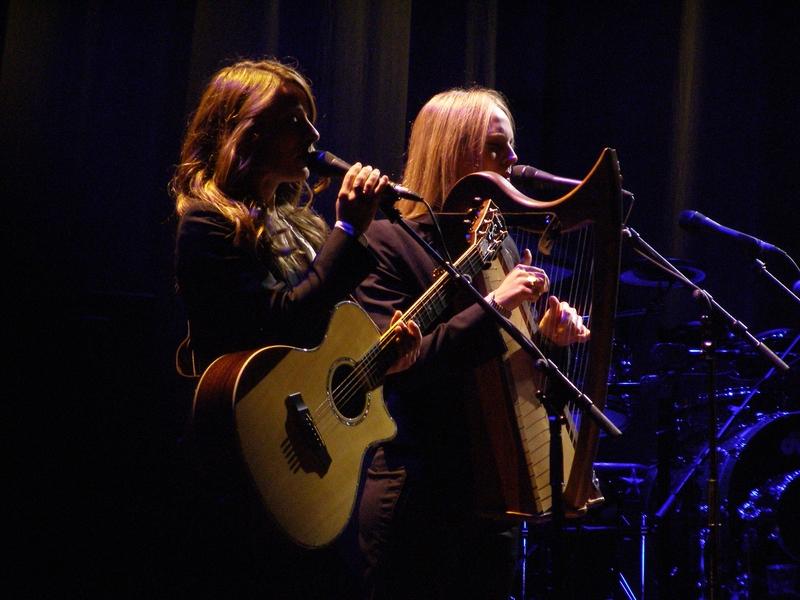
#18. Use your feelings
Music is all about communicating our feeling and emotional state. Often, the power of a track lies in its ability to express a sentiment that is beyond words.
So when you can’t get anything to work, let your feelings write the song. But wait, what does that really mean?
Instead of sitting down with a plan to write a particular track, just embrace your mood. If you’re feeling sad, use it to inspire your music or lyrics. The thing is, everyone knows the pain of feeling down from time to time. If you can capture that sensation, it’s something that everyone can relate to.
#19. Write melodies that you can’t stop singing
If you want to write a song that people love, make it catchy as hell. Now, you might be saying, “Yeah, thanks, that’s like saying if you want to write a great book, make it really fun to read.” But what we’re really saying is that if you want people to remember and sing your melody, you need to keep it simple.
While complex or weird melodies have their place, the most iconic and memorable melodies keep things simple.
If your listener has to expend too much energy into understanding your melody, it won’t be catchy. So avoid violent changes in pitch or too many notes. Additionally, move your melodies up or down one step at a time.
Here is a technique that works when you’re out of inspiration. Write out the notes of a scale. Pick one to start and go up or down. Play with the rhythm a bit until you find something that grooves. Then, go off-grid and replace one or two of the notes with something that falls outside the scale. It will have just enough unpredictability to stand out.
#20. Use song structures that work
The creative process is a strange mistress. Many artists believe that to produce truly original work; they need to eschew traditions and forge their own path. While there is merit to this thinking, there is no need to throw the baby out with the bathwater.
Standard structures became standard for a reason: because they work!
So, think about some of the songs you love and see where they fit with these songwriting formats.
ABAB: This binary format is popular in folk and rap. Basically, it involves swapping between a verse and a chorus.
AABA: Also called the thirty-two bar form, uses a verse, verse, bridge, and verse over four groups of eight bars. The Beatle’s Yesterday is a popular example.
ABAC: This song format uses a verse, bridge, and another verse, before exploding into the chorus.
ABCD: The format uses a verse, bridge, and chorus and then extends the last part into something new.
If you’re stuck wondering how to structure your song, pick from one of these formats.
#21. Generative composition
While some musicians think this is cheating, generative composition has been around for over 50 years. Brian Eno is credited with inventing generative music. It involves using a computer to make random music.
The rise of AI means that these types of composition will become more commonplace. The machines that produce generative music will become more sophisticated at understanding the underlying rules of music and reproducing them.
However, there are lots of existing computer plug-ins that you can use for throwing out random or semi-random notes. If you’re really stuck, these tools can help you put together melodies or chord progressions.
The beauty of this approach is that it will produce music that you wouldn’t ordinarily write. You can use the results to write a song by taking the parts you like and throwing away the rest. That could be as simple as two chords or notes you like, or it might be whole bars.
Aside from the computer aspect, artists like Tom Waits are known to play as many as five pieces of music at one time and to listen out for interesting overlaps. While this is definitely a hit-or-miss method, it can turn up some happy accidents that you can use as inspiration when you want to write a song.
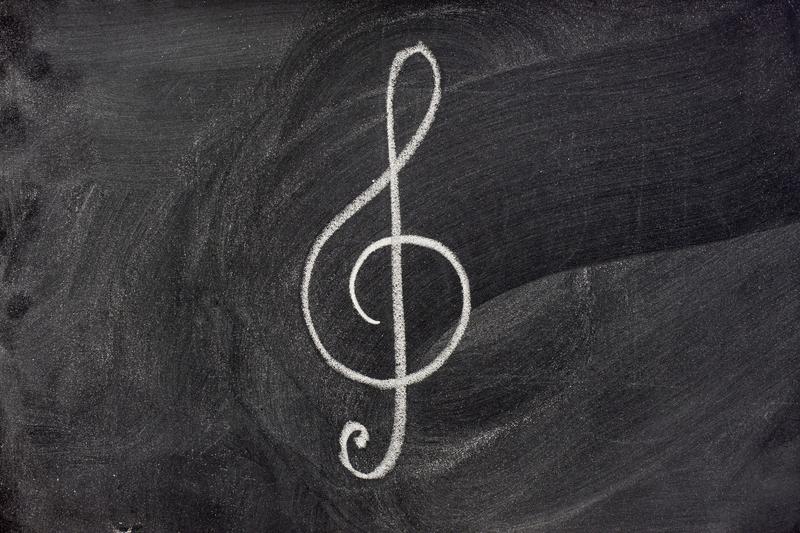
#22. Remove distraction
We live in an age of near-endless information. There are so many distractions that we need to contend with, from the internet to mobile phones to consistently excellent TV programs.
A big part of getting into the creative zone comes from allowing your mind to think. Some people choose meditation; others can enter the right mental space through concentration.
Find whatever method works for you, and you’ll allow your mind to unleash its creativity.
#23. Set a time limit
Limitations are a great way to spur creativity. One of the biggest problems people have when writing songs is that they spend so long agonising over words and chords that they second-guess themselves.
How many times have you written a song you like and spent countless hours fine-tuning or changing it until you were sick of it? Probably a lot. This affliction affects many songwriters.
While working on your songs can improve them, often you just move pieces around to the extent that the vitality and drive you loved in the first place get lost.
So set yourself a limit, like an hour or two and see what happens. You won’t have time to sit around debating your choices. Instead, you’ll need to make decisions on the fly and listen to your gut. The results can be spectacular.
#24. Write a riff first
A lot of songwriters start with a chord progression and then build a riff on top. However, if you’re a player, the chord choices that a composer uses can hinder your freedom.
So why not go the opposite way and work out your riff first? The sky is the limit.
Think of some of your favourite tracks. Many of them have a killer or super funky riff that carries the song.
#25. Don’t be afraid to sample
Samples are an excellent source of inspiration. In the past, the big debate was about whether sampling was stealing. These days, the practice has become more commonplace.
The trick here is to use whatever you want. It could be a driving beat that you write chords or riffs over. Or, you could use a vocal, a sax line, or some shuddering strings. Whatever it is, use it as the base when you want to write a song.
The best samples reimagine a song. They flip the sample into a mood or feeling that the original composer never intended.
The thing is, once you’ve got your song going, you don’t even need to use the sample. You can take it out and see how your track sounds without then. If it feels a bit lonely, write a new piece of music on top to replace it. You never know what you’ll come up with.
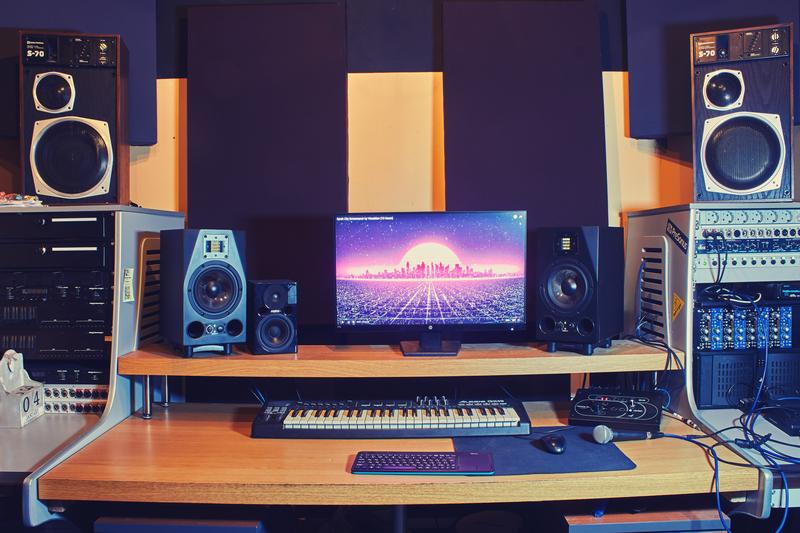
#26. Borrow techniques from novelists
When you’re in need of inspiration, you can draw from other types of art that aren’t music.
For example, the Beat Generation writer William S. Burroughs used an interesting technique to write his prose. Often, he would write a bunch of different words out on cards and spread them on his table. Then, he would rearrange them into different orders to develop unique juxtapositions.
Another famous technique that some novel writers have used is to write a linear story and then throw their manuscript up in the air. Then, once they’ve gathered up the sheets, the story will be restructured in a strange new order.
Sometimes you have to let the universe do your work.
#27. Get help with your rhymes
While not all lyrics have to rhyme, it does make a song far more memorable and hypnotic. Thankfully, there are lots of tools out there to help you.
For starters, you can use a rhyming dictionary when you’re hunting for that second killer line.
Of course, there’s no need to stop there. You can also use a random word generator WITH a rhyming dictionary to pump out rhyming pairs at an incredible speed.
This tip is great for generating lyrics. How much control you retain is up to you, but you can definitely come up with words and ideas that you’d never usually think about.
#28. Use different sessions for lyrics and music
If you already use this method, skip to the next tip. But if you don’t, read on.
Writing lyrics and music together can work for some people. But if you find yourself at a dead end, it might be time to separate the process.
A good song synthesises music and lyrics. But they are distinct processes. So, take some time to write progression and riffs without worrying about music. Then, schedule a session for just writing out lyrics.
You can do these in any order. Whatever suits your workflow.
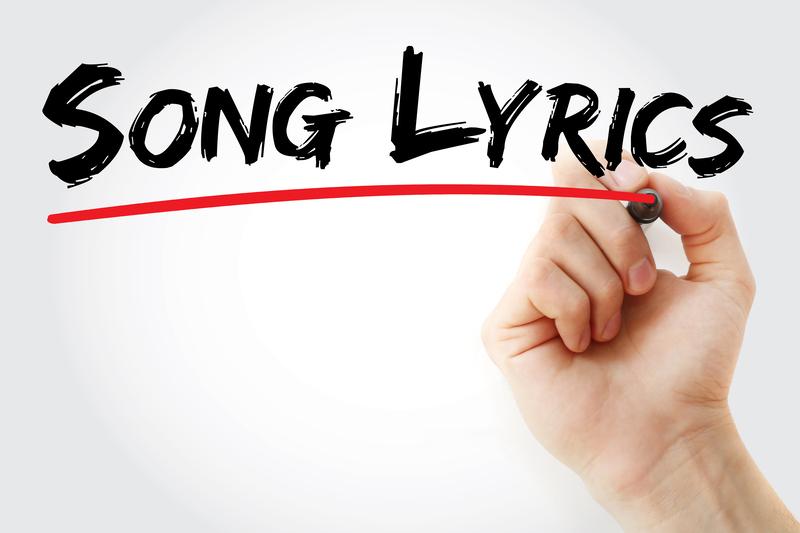
RELATED: Top Tips on Creative Lyric Writing
#29. Keep a notebook and listen
If you want to be a lyricist, you need to keep a notebook. Inspiration can strike at any time, so you need to be ready.
Dreams can be an interesting source of the material. So make sure you keep your notebook on your bedside table so that you can jot down the weird and wonderful things your subconscious throws out while you sleep.
Finally, if you spend time in public, you’ll encounter snatches of intriguing thoughts and discussions. If you hear something particularly interesting, write it down.
While your notebook might not have complete lyrics in there, it will be an endless source of lines, phrases, and potential song titles that you can use during your lyric-writing sessions.
#30. Turn verses into choruses
Progressing a verse into a chorus can be hard. Sometimes you just can’t find that perfect transition. However, sometimes you don’t need to.
Tom Petty’s Free Fallin’ uses D-G-A for both verse and chorus, and it sounds great. While you might not have his falsetto, you can borrow this technique.
#.31 Reverse your verse
Continuing on from the last tip, let’s say you have a killer verse chord progression, but you can’t figure out where to go from there. You could throw your hands up in the air and admit defeat, or you could get creative.
Let’s say your verse is D-A-Bm-G. Then why not try a chorus with G-Bm-A-D? This mirroring technique can work well at times.
#32. Switch up the number of chords you use
Writer’s block often strikes when we do the same things over and over again. So break out of that by switching up your chord count.
Let’s say you’re the Free Fallin’ type, and you like to stick to three chords for all your songs. Then change it up and force yourself to incorporate six or more chords for your progressions.
Similarly, if you typically use countless numbers of chords, try and pair it down to the bare minimum.
It could be enough to lift you out of your funk.
#33. Reharmonising
Take a melody that you love. Then, reharmonise the underlying chords to see how it sounds. This technique can throw up some really interesting new moods and feelings.
Of course, if the melody you used is from an existing piece of music, you can throw it out and write your own melody on top.
Then you’ll have an entirely new song.
#34. Record your jams
While jamming is something you should always do for practice, it’s also a great way to come up with ideas. However, there is nothing worse than the feeling of trying — and failing — to remember a killer riff your loved yesterday.
To avoid this scenario, record your jams. That way, you can reproduce any great parts.
This tip is great whether you’re a keyboardist playing into a sequencer, a bedroom guitar player, or a studio band.
These moments of inspiration can strike at the most unexpected time. Don’t let them slip away.
#35. Don’t settle for one hook
While many songs don’t even manage to have one hook, if you want to write songs that are catchy and memorable, you’ll need to write something that grabs people’s attention.
However, once you’ve got them listening, it’s good if you can add in a few mini-hooks too.
Of course, they don’t have to be as splashy as your main hook. They can be something as simple as a little riff, a bassline, or even some vocal yelps.
#36. Embrace variation and contrast
One-paced songs can work. However, more often than not, they bore your listener. So add as much variation as possible to keep your audience interested.
If you’re verse features shouty, staccato rhythms, consider a verse with softer, longer phrases. And vice versa.
Additionally, explore contrasts with dynamics, tempo, and different metres.
#37. Change key
We’ve all been guilty of sticking to our favourite key. Sometimes it’s to do with our vocal range, and other times its just sheer laziness.
When you want to expand your repertoire, start your songs with different keys. Each key has its own characteristics and moods, so chopping and changing between keys can open you up to something different.
If you do write in a key that makes it hard for you to sing, you can always adjust it afterwards.
#38. Embrace technology
We get it. If you’ve got a badass blue or jazz band, adding some New Order-style arpeggios over your music isn’t going to cut it. Worse still, synthetic drums could totally ruin your vibe.
However, music technology has advanced quite remarkably in recent years. While a lot of the good stuff can be found in amp replicas and reproductions of old synths and organs, music tech can really help with composition.
So try out some of the cool guitar and bass VSTs on the market. You’ll probably be surprised at how good they sound.
Sitting down to write on these tools could provide you with some novel ideas for your next writing session.
#39. Use found sounds
While found sounds are something that you’re more likely to encounter in electronic music, they can provide inspiration for songwriters of any kind.
So wander around the streets of your city or town with a decent mic, and you can record sounds for your next compositions.
You can use a babbling brook as a beat, city noises under moody intros, or the sounds of people talking to add texture and depth to your productions.
Anything goes!
#40. Take regular breaks
Sometimes you can get lost in a task and not notice three hours fly by. Other times it’s hard to concentrate for more than five-minute bursts. Creativity is mysterious.
However, one way that you can boost your productivity is by taking regular breaks. You need to be disciplined and set a time.
One popular system is called the Pomodoro technique. It involves 25 mins of work for every 5-minute break.
Stepping away for just five minutes can allow you to come back recharged and ready to do your best work.
Bonus Tip: Collaborate
As the old saying goes, two heads are better than one. Sometimes, that’s true in songwriting too.
Now, not every songwriter likes working with other people. It can require lots of toing and froing and a whole lot of compromise. However, it can also lead to incredible results.
If you have bandmates, it’s something you’ll do already. However, don’t be afraid of collaborating with people from an entirely different musical discipline. Team up blues with classical, acoustic guitar with a jazz bassist, or rock with trumpet. The only limits are your imagination.

Final thoughts
Songwriting is one of the most rewarding human activities. But when your creativity is running dry, it can also be one of the most frustrating experiences.
Thankfully, there are a number of tips, tricks, and approaches that you can use to lift you out of your dip and help you get back on track.
While the tips we listed above will help your songwriting, nothing beats learning the foundations involved in writing hit songs.
The Elevate by ICMP Complete Songwriter Expert Track is a 4-in-1 course that covers everything from theory, song structure, lyric writing, and everything in between. Buy Now if you’re ready to take your composition to the next level.
From the blog
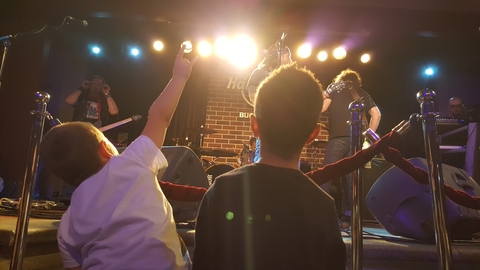
Rockstars in Training: The Best Kids’ Electric Guitars for 2024
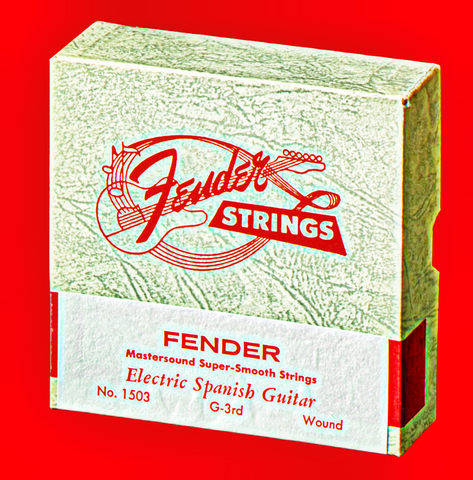
Redefining Your Riffs: How Electric Guitar Strings Shape Your Sound
